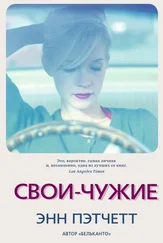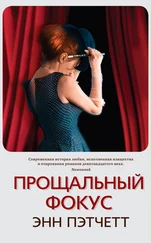“That’s still my job,” Sandy said. I hadn’t heard Sandy get in on a joke in months, if there was in fact anything funny about Maeve moving to the third floor.
“Well, let’s go then,” Maeve said to our father. “It’s a long hike. We should get started if we’re going to make it back in time for supper. Something smells good.” She looked at Bright. “Is it you?”
Bright laughed but then Norma ran out of the room in tears, suddenly understanding what taking Maeve’s room might mean to Maeve. Maeve watched her go and I could see on her face she wasn’t sure whom she should be comforting: Norma? Sandy? Me? Our father had her bag and was already heading up. After a moment’s hesitation she followed him. In truth they were gone for a very long time, and no one went up to the third floor to rush them, to tell them that dinner was on the table and we were waiting.
Maeve came home again for Christmas that year but she stayed only a few days. She’d been invited to a friend’s house in New Hampshire to ski and could get a ride up with another Barnard girl who lived in Philadelphia. They were rich girls, all of them. Smart, popular girls who knew how to work a slope and aspired to read The Red and the Black in French. When she found out the dorms wouldn’t be closed at Easter, Maeve decided to stay at school. Plenty of her friends lived in the city, and there were always invitations to go to dinners. Besides, she had work to do. She could go to Easter Mass at St. Patrick’s and walk down Fifth Avenue with girls who did exactly that every year. No one could have blamed her, but I blamed her all the same. How was I supposed to get through Easter without her?
“Take the train into the city,” she said on the phone. “I’ll pick you up. I’ll call Dad at work and get it set. You can manage the train by yourself.”
I felt older than my friends at school, the ones with two parents and normal-sized houses. I looked older, too. I was the tallest person in my class now. “Boys with tall sisters wind up being tall boys,” Maeve had said, and she was right. Still, I wasn’t sure my father would let me go to New York by myself. Even if I was tall and a good student, even though I largely fended for myself on any given day, I was still only twelve.
But my father surprised me, saying he would drive me to New York himself and let me come home on the train. Barnard was about two and a half hours by car. My father said we would pick Maeve up and the three of us would have lunch, then he would drive back to Elkins Park without me. It sounded so nostalgic when he said it, the three of us , as if we had once been a unit instead of just a circumstance.
Andrea caught wind of the plan and announced at dinner that she would ride along. There were plenty of things she needed in the city. But after she thought about it some more she said the girls should come too, and that after they dropped me off at Maeve’s, my father could take them sightseeing. “The girls still haven’t been to New York, and you’re from there!” Andrea said, as if he’d conspired to keep New York from them. “We’ll take the boat out to see the Statue of Liberty. Wouldn’t that be something?” she asked the girls.
I hadn’t been to New York either but I wasn’t about to bring that up for fear I’d be seen as asking to tag along. By the time Sandy brought dessert, Andrea was talking about making reservations at a hotel and going to a show. Did my father know anyone who could get tickets to The Sound of Music ?
“Why do you always wait until the last minute to make plans?” she asked him, then went on to discuss the possibility of lining up some interviews with portrait artists. “We need to have the girls’ portraits painted.”
I studied the final smear of the rhubarb crisp on my plate. It didn’t matter. I was only missing lunch, that ridiculous notion of the three of us. I was still getting my ride to see Maeve, and that was all I really wanted. It didn’t matter who was in the car. Disappointment comes from expectation, and in those days I had no expectation that Andrea would get anything less than what she wanted.
But in the morning, my father pushed through the swinging kitchen door while I was still eating my cereal. He tapped two fingers on the table just in front of my bowl. “Time to go,” he said. “Right now.” Andrea was nowhere in evidence. The girls were still in Maeve’s room (they slept there together, as per Bright’s prediction), Sandy and Jocelyn had yet to arrive. I didn’t ask him what had happened, or remind him that his wife and her daughters were supposed to come along. I didn’t go and get the book I planned to read on the train coming home or tell him we were supposed to leave two hours from now. I left my bowl of half-eaten Cheerios on the table for Sandy to find, and followed him out the door. We were ditching Andrea. Easter was late that year, and the morning was flush with the insane sweetness of hyacinth. My father was walking fast and his legs were so long that even with his bad knee I had to run to keep up. We went beneath the long trellis of wisteria that had yet to bloom, and all the way to the garage I thought, Escape, escape, escape . We beat the word into the gravel with every step.
I could scarcely imagine the courage it required to tell Andrea she couldn’t come with us, and she in turn must have started the kind of argument he found untenable. All that mattered to him was getting out of the house before she came downstairs to make another point in her case, and with that imperative, we fled. We were in the car hours earlier than we had planned.
If I asked my father a question when he was quiet, he would say he was having a conversation with himself and that I shouldn’t interrupt. I could tell he was having one of those conversations now, so I looked out the car window at the glorious morning and thought about Manhattan and my sister and all the fun we were going to have. I wouldn’t ask Maeve to take me to see the Statue of Liberty, Maeve got sick on boats, but I wondered if I could talk her into the Empire State Building.
“You know I used to live in New York,” my father said once we were on the Pennsylvania Turnpike.
I said I guessed I did. What I didn’t say was that Andrea had just brought it up at the dinner table.
Then he put on his turn signal to work his way towards the exit. “We’ve got plenty of time. I’ll show you.”
For the most part, what I knew about my father was what I saw: he was tall and thin with weathered skin and hair the color of rust, the color of my hair. All three of us had blue eyes. His left knee was slow to bend, worse in the winter and when it rained. He never said a word about it but it was easy enough to tell when it hurt him. He smoked Pall Malls, put milk in his coffee, worked the crossword puzzle before reading the front page. He loved buildings the way boys loved dogs. When I was eight years old, I asked my father at the dinner table if he was going to vote for Eisenhower or Stevenson. Eisenhower was running for a second term and all the boys in school were for him. My father clicked the point of his knife against his plate and told me I was never to ask a question like that, not of him, not of anyone. “It may be fine for boys to speculate on whom they might vote for because boys can’t vote,” he said. “But to ask an adult such a question is to violate a man’s right to privacy.” In retrospect, I imagine my father was horrified that I might think there was any chance he’d vote for Stevenson, but I didn’t know that at the time. What I knew was that you had to touch a hot stove only once. Here are the things I talked to my father about when I was a boy: baseball—he liked the Phillies. Trees—he knew the name of every one, though he would chastise me for asking about the same kind of tree more than once. Birds—likewise. He kept feeders in the backyard and could easily identify all of his customers. Buildings—be it their structural soundness, architectural details, property value, property tax, you name it—my father liked to talk about buildings. To list the things I didn’t ask to my father about would be to list the stars in heaven, so let me throw out one: I did not ask my father about women. Not women in general and what you were supposed to do with them, and definitely not women in the particular: my mother, my sister, Andrea.
Читать дальше
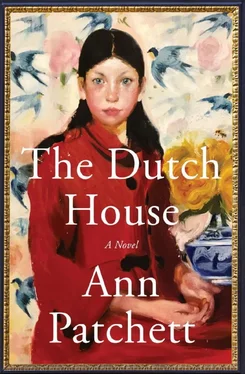


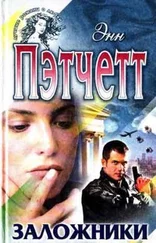
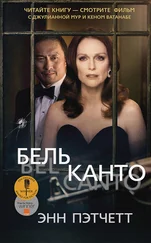
![Энн Пэтчетт - Прощальный фокус [litres]](/books/402782/enn-petchett-prochalnyj-fokus-litres-thumb.webp)
